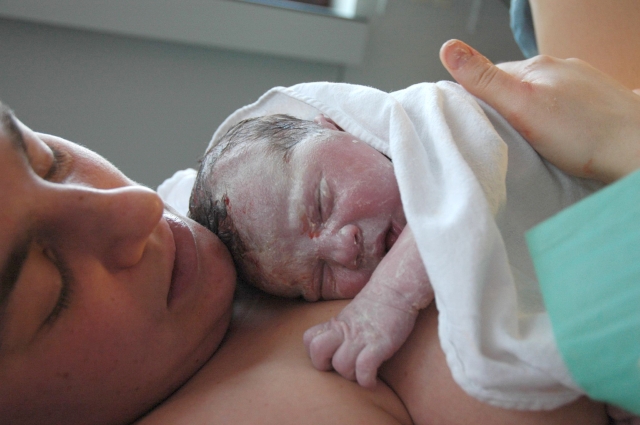Women Across Eurasia Report ‘Traumatic’ Childbirth Experiences during COVID-19
New investigation reveals ‘alarming’ evidence of childbirth experiences that breach national policies and WHO guidelines, including bans on birth companions that are still in place after lockdowns have eased.
Women across Eurasia have reported disrespectful treatment, bans on birth companions and other “traumatic” childbirth experiences during COVID-19 that breach World Health Organization guidelines, a special OpenDemocracy investigation revealed this week.
Bans on birth companions are still in effect in some hospitals in Armenia and Ukraine, despite the easing of lockdowns and the reopening of ‘non-essential’ shops and restaurants. Some hospitals in Georgia, Kazakhstan, Moldova and Russia also banned partners at different points during the pandemic, against national regulations in all these countries.
According to the WHO, all pregnant women “have the right to high quality care before, during and after childbirth”. It says women giving birth should have companions of their choice and receive respectful treatment and clear communication from maternity staff, appropriate pain relief, and support to hold their baby skin-to-skin and to breastfeed, even if they are COVID-19 positive. They should not have C-sections or other procedures without medical justification.
Since the pandemic was declared in March, OpenDemocracy has spoken to dozens of women around the world and identified cases in at least 45 countries of experiences during childbirth that appear to breach these guidelines, as well as national policies. In Eurasia, these cases include:
Being treated “like a machine”
“You are not perceived as a woman. They treat you like a machine,” one woman in Armenia told OpenDemocracy, describing how she felt pressured by hospital staff into having a C-section, which she thought was not medically necessary and was performed to get her out of the delivery room faster.
Forced to give birth “alone”
Partners were banned from maternity wards across the region. One woman in Ukraine told OpenDemocracy. “My husband and I are ready to handcuff ourselves together if doctors won’t allow him in,” she said.
No protection
Another woman in Ukraine described being attended to by medical staff without personal protective equipment (PPE). She was also asked by staff to bring her own cotton wool and antiseptic, as well as gloves for them.
In response to OpenDemocracy’s findings Petra Bayr, Chair of the Council of Europe Parliamentary Assembly’s Equality Committee, said: “We expect more from our governments in times of crisis. They must be held accountable for the mistreatment documented by OpenDemocracy.”
Olga Gorbenko, co-founder of the NGO Natural Rights Ukraine, said restrictions on birth companions have roots in the USSR, which did not allow visitors into maternity wards, even though “it is actually dangerous for a woman who gives birth to be alone.”
Ian Askew, WHO Director of Sexual and Reproductive Health, said the WHO’s childbirth guidelines should be followed at all times and everywhere. He added that: “Many of us are receiving anecdotal reports of women not receiving respectful, dignified or high-quality care before, during and following childbirth. This is alarming.”
Melissa Upretti, a human rights lawyer and member of a UN Working Group on Discrimination against Women, called OpenDemocracy’s findings “shocking and disturbing”. She added that the denial of services that women need is “discrimination from a legal standpoint. We do have a very strong case to make… that governments are violating their own laws and policies.”
Petra De Sutter, a Belgian MEP, gynaecologist and President of the European Parliamentary Forum for Sexual and Reproductive Rights (EPF), said: “OpenDemocracy’s research clearly reveals how unnecessary restrictions constitute an alarming pattern of women’s health and rights being deprioritized during the crisis.”
A spokesperson for the UN High Commissioner of Human Rights, Michelle Bachelet, said “states need to bring their practices in line with the WHO guidance in this area without delay,” and “welcoming a child into the world should be a time of joy, rather than stress, trauma, and potential human rights violations.”
In Armenia, seven of the nine maternity hospitals in the capital Yerevan confirmed to OpenDemocracy in mid-July (weeks after the lifting of other COVID-19 restrictions) that birth companions were still not allowed. The other two hospitals did not respond. The Armenian health ministry said it had offered health institutions the option to “temporarily suspend visits”, but that companions can be allowed if precautions are taken. In June, three hospitals specified that women who pay for a private room can have postnatal visits from other women, but men are still banned. In Ukraine, several women told OpenDemocracy they still faced bans on birth companions after lockdown began to ease in May.












